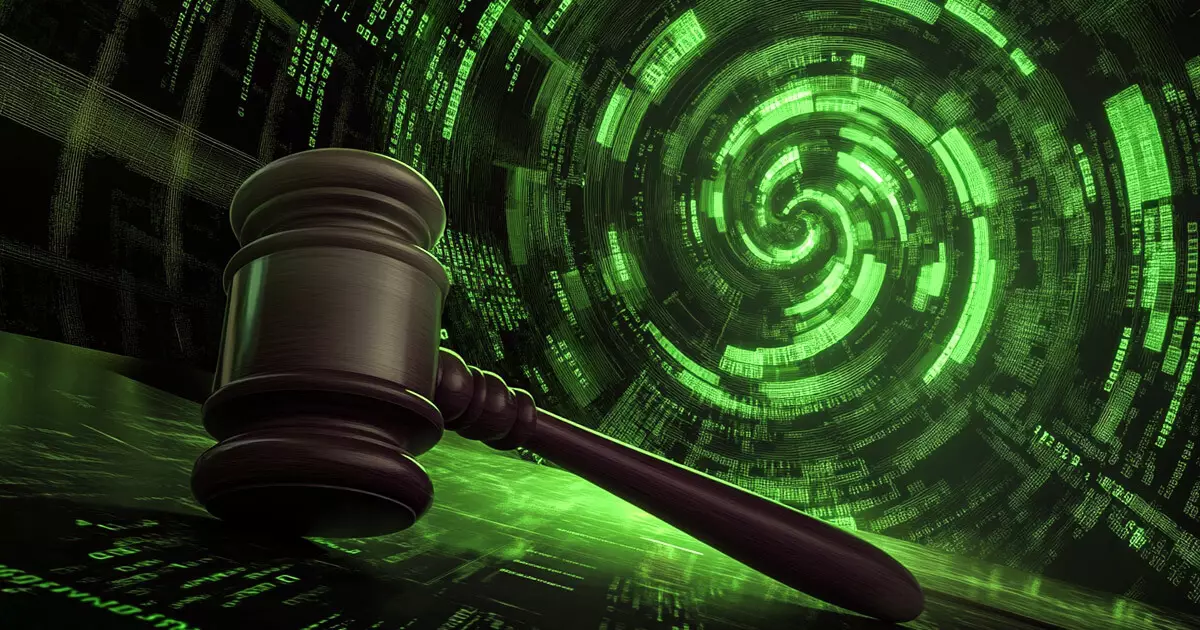Recent judicial decisions in the United States are painting a complex picture regarding the intersection of cryptocurrency technology and existing legal frameworks. One landmark ruling from Judge Katherine Polk Failla has noteworthy implications for the burgeoning domain of cryptocurrency protocols. On September 26, her decision established that software code employed in blockchain projects, such as Tornado Cash, does not receive First Amendment protection, sparking heated discussions among legal experts, developers, and industry observers. This ruling, particularly concerning ongoing legal battles for involved individuals like Tornado Cash developer Roman Storm, raises critical questions about the future of cryptocurrency and the potential reach of government regulations.
Judge Failla’s ruling delineates a significant boundary between speech and function in the digital realm. Despite arguments from Storm advocating that his development efforts with Tornado Cash fell under free speech protections, the judge affirmed that the practical applications of such protocols—specifically their roles in fund transmission—do not constitute protected expression. The ruling essentially casts protocols like Tornado Cash as money transmitters, placing them under the scrutiny of the Bank Secrecy Act (BSA), which mandates stringent regulations for entities involved in money transmission, even if they lack direct control over the funds.
This judicial interpretation highlights a pivotal moment, outlining a broader legal precedent where the functionality of a crypto protocol could be subject to financial laws. The ruling opens the door for regulatory frameworks to encompass entities that do not directly handle funds but facilitate their transmission—a significant expansion of the legal landscape governing cryptocurrency development and utilization.
Notably, this ruling arrives amidst a broader push by U.S. regulators to create clearer guidelines for how cryptocurrency businesses operate. With the rise of decentralized finance (DeFi) and blockchain technology, the challenge for lawmakers has been to apply existing financial regulations to an evolving digital economy. The court’s reasoning in treating Tornado Cash as a money transmitter—regardless of developers’ control over assets—provides a clearer posture regarding compliance and accountability within the industry.
The implications resonate far beyond the immediate case. The ruling could prompt a wave of regulatory scrutiny on other platforms engaged in similar transactions. Legal entities like Samourai Wallet also find themselves encompassed in the discourse surrounding compliance, amplifying concerns over regulatory overreach that could stifle innovation in an already burgeoning segment of technology.
The ruling has drawn significant backlash from various stakeholders in the crypto industry. Legal experts and advocates for cryptocurrency freedom have expressed staunch opposition, viewing it as a slippery slope leading to increased liability for software developers. Amanda Tuminelli from the DeFi Education Fund articulated that this ruling may overwhelm developers with unexpected liabilities, thereby affecting individuals who engage in software development across diverse sectors.
Jake Chervinsky, another notable figure in the crypto legal landscape, has characterized the decision as damaging, suggesting it undermines the foundations of software innovation. This perspective posits that stifling developers’ protections will have ripple effects across industries, potentially limiting the progress and responsiveness that has characterized technological evolution.
As Roman Storm prepares for his trial set for December 2, the stakes could not be higher. His legal team has signaled intentions to appeal the decision, further emphasizing the gravity of the implications tied to this case. The legal journey of this case will likely be scrutinized closely, serving as a barometer for future disputes in the crypto arena.
While the ruling presents clarity concerning prevailing legal expectations, it equally cultivates an atmosphere ripe for challenges and appeals. The broader trajectory remains uncertain as the legal community and stakeholders in the cryptocurrency ecosystem engage in ongoing dialogues about compliance, accountability, and the preservation of innovation. As this scenario unfolds, the ramifications of Judge Failla’s ruling could serve to significantly redefine the responsibilities and rights of software developers in an ever-evolving technological landscape.














Leave a Reply